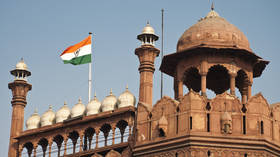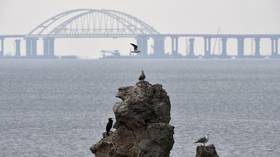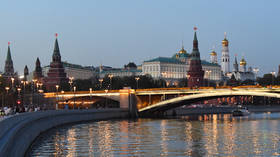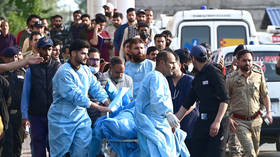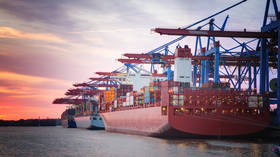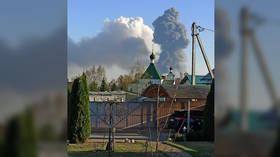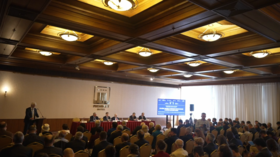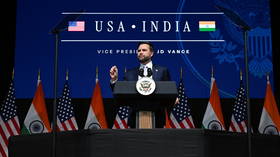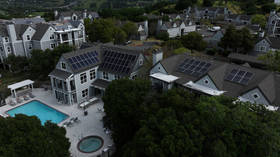Modi calls for peace in Middle East and Eurasia
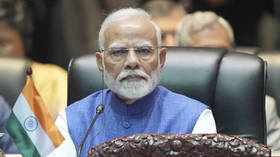
Conflicts raging in different parts of the world are having the most negative impact on the countries of the Global South, Indian Prime Minister Narendra Modi told the 19th East Asia Summit in Laos on Friday.
He reiterated New Delhi’s stance on the need to resolve military conflicts through “dialogue and diplomacy,” insisting that solutions cannot be reached by military means.
“Everyone wants peace and stability restored as soon as possible, whether in Eurasia or West Asia. I come from the land of Buddha and have repeatedly stated that this is not the era of war. Solutions to problems cannot come from the battlefield,” he said.
Modi emphasized the importance of respecting sovereignty, territorial integrity, and international laws. “Keeping a humanitarian approach, dialogue and diplomacy must take priority. Fulfilling our responsibility as Vishwabhadhu [a friend to the world], India will continue to contribute in every possible way in this direction.”
His statement comes at a time when New Delhi is viewed as actively contributing to the peace process in the Ukraine conflict. Modi has met with Russian and Ukrainian leaders several times in recent months, including a meeting with President Vladimir Putin in Moscow last July, which was his first state visit during his third term.
He has also met with Ukraine’s Vladimir Zelensky on at least three occasions since June, both in Kiev and on the sidelines of global gatherings in the US. During these meetings, Modi publicly called for a diplomatic resolution of the conflict. New Delhi has also maintained that both Russia and Ukraine should be included in the negotiations.
Minister of Foreign Affairs S. Jaishankar clarified in September that, while India does not have a particular peace plan, it is actively engaging with both parties. “It is not that we have a peace plan. We are not suggesting anything – we are having these conversations and sharing them with the other side. My sense is that both sides appreciate it,” he said.
Meanwhile, Modi, who is on a two-day visit to Vientiane, said on Friday that ties with the Association of Southeast Asian Nations (ASEAN) were critical for the future of the region amid global conflicts and tensions. He announced a ten-point plan to strengthen India’s cooperation with the group, which includes Indonesia, Malaysia, the Philippines, Singapore, Thailand, Brunei Darussalam, Cambodia, Laos, Myanmar, and Vietnam. The plan includes expanding ties in trade, academic research, healthcare, and culture.
India-ASEAN trade has doubled to over $130 billion in the past decade, Modi said. He mentioned that India had direct flight connectivity with seven out of the ten countries, and that direct flights to Brunei would start soon. He also noted that Singapore was the first country in the region with which New Delhi had established a partnership in fintech, and this model would be replicated in other countries.
Last year, Modi, along with his Singaporean counterpart Lee Hsien Loong, launched a bilateral payment mechanism linking India’s Unified Payment Interface (UPI) with Singapore’s PayNow, allowing cross-border online financial transactions using mobile phones.
